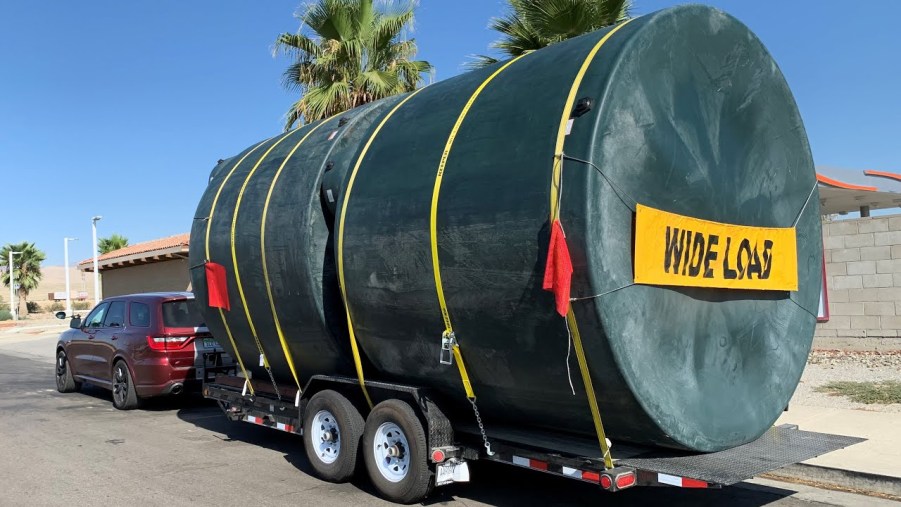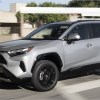
Do You Really Need a Pickup Truck? or Should You Buy an SUV Instead?
Pickup trucks are great tools and can serve as family vehicles, but they aren’t for everyone. Yes, some are genuinely bought to work, but more often they’re bought for the “what if I need it?” factor. What if I buy a boat? What if I need to haul some lumber? If consumers look logically at their needs, they’ll often find the truck they should get is smaller than the one they have. Or, indeed, that they don’t need a truck at all.
In fact, one of the best pickup trucks on sale today isn’t too dissimilar from a crossover with a bed. That’s not a knock, but a point of consideration. SUVs can do many of the same things pickup trucks do. But in many day-to-day scenarios, it’s the SUV that’s the better buy.
When is an SUV the better choice?
On his YouTube channel Alex on Autos, host Alex Dykes describes how, although he himself loves pickups, often an SUV serves his needs better.

In his video, Dykes specifically uses a Dodge Durango Citadel and a Ram 1500 and 2500. Comparing the Durango to the Ram 1500, Dykes notes that the SUV offers several advantages. For one, the Durango is roughly 3’ shorter than the 1500, but it still offers a 3rd row of seats. The SUV’s smaller size makes it easier to maneuver and park, especially in city streets where pickup trucks spend an increasing portion of their time.
For another, Dykes claims that, overall, SUVs are cheaper than an equivalently-optioned pickup. And, comparing Durango trims to Ram 1500 trims, this does check out. Overall, to option a Ram 1500 to the same equipment level as the Durango, buyers would have to drop about $2000 more.

Finally, Dykes brings up the bed. Loading something into an SUV, or onto a trailer being towed by an SUV, is significantly easier than having to lift it up and over the bed of a pickup. Especially today’s tall, full-size pickups—there’s a reason so many have stairs built into the tailgate.
Simply put, on a daily basis, SUVs are just easier and cheaper to live with, and can fit more people. However, there are some areas that pickup trucks edge SUVs out.
Where do pickup trucks excel?

In the r/cars sub-Reddit, several users pointed out that a pickup’s bed separates its contents from the truck’s passengers. That can come in handy for certain items, such as a cooler full of fish. And although loading a trailer towed by an SUV is easy, parking the whole ensemble isn’t. Pickup trucks, in this case, are easier to deal with. A bed is also usually bigger than an SUV’s trunk.
In addition, Dykes acknowledges pickups are in some ways better suited to towing and hauling. SUVs, for instance, can’t do 5th-wheel towing, such as with RVs, but pickup trucks can. Trucks, being more towing-centric, also usually offer torquier engines than SUVs or crossovers. And although SUVs offer broadly similar payloads and towing capacities, pickup trucks can usually tow and haul more.

Pickup trucks are also usually body-on-frame. Having the two separate means pickups are quieter when loaded up with a trailer than a unibody SUV or crossover.

However, not every modern SUV is unibody. The three reliable but low-selling SUVs we recently featured are all body-on-frame. And when it comes to towing, bigger numbers aren’t always the better choice.
How much do you actually tow?
Motor Trend said as much when the Ram 2500HD was chosen as the Truck of the Year. And Alex Dykes repeats this in his video. Having a vehicle that claims big towing numbers is rarely as important as having a vehicle that feels good behind the wheel when its towing something. The Ram 2500HD, which Dykes also features in his video, doesn’t tow as much as some of its rivals. However, it won TOTY because of its composure when towing.
But getting back to the pickup vs. SUV question, how much do you actually tow? How much payload do you actually carry on a daily basis? Yes, there are some people who own horses or farming equipment who do usually tow big trailers. But a one-horse trailer, with horse and all necessary gear, food, and water, is only about 3000 lbs. Even the V6 Durango can tow that, no problem.

Knowing how much you tow—not just equipment dry weight, but with full fluids, accessories, and so on—is key. Not just for understanding what kind of hitch you need, or if you need a commercial license. Body-on-frame pickups—and SUVs—may be good towers, but they pay for it in fuel efficiency, even without trailers.
Having a big pickup truck may fulfill a psychological want, but does it actually serve your needs? Or is it all a bit much?
The issue of safety

There is one more key area where SUVs are markedly better than pickup trucks: safety. Yes, both trucks and SUVs have improved over time. But there are significantly more SUVs on the IIHS Top Safety Pick list than trucks. In addition, the IIHS recently announced it would have to scale-up the speed and size of their crash-test barrier because SUVs and trucks had gotten so much larger.

But, the IIHS also found that, when it comes to collisions with cars, SUVs are less dangerous than trucks. Statistically, in a car-SUV collision, the car passengers are only 28% more likely to die than if they hit another car. But in a car-truck collision, that jumps to 158%. That’s not to say SUVs perform perfectly in crash-tests—far from it. However, broadly speaking, SUVs are safer than pickup trucks. Not just for the passengers, but the people outside the vehicle.
And if you’re trying to buy a family vehicle, that’s definitely a point worth considering.


